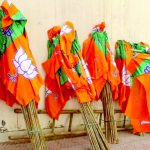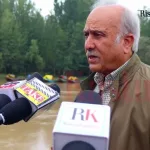Global strategic equations are changing. There are both economic and political reasons to substantiate it. India cannot be averse to this changing geo-political churning that is evident on the world scene. India is emerging and as such its national course of action must be in tune with the national interests. The decades old foreign policy based on non-alignment may have been India’s compulsion but it has affected the national psyche and made India to play on back foot and even abandon the national interest, when there was a need to play on the front foot. National growth is defined by many factors that range from political to economic variables. The correlation between these two shape the national journey and if these two factors are in sync with the pragmatic issues being faced at various levels of national security and social security of the nation then it brings stability ,conviction and peace. This is what was underlined by Dr. S. Jaishankar, the External Affairs Minister of India at a session on “New India’s Risks, Reforms and Responsibilities” at The Economic Times World Leaders Forum in New Delhi. He was prudent in situating India’s challenges and that too in a forthright manner. He has made it clear that “India has a China Problem” but that does not mean it is restricted to India only. He went on to define the “General China Problem” that has engulfed the world and has added impact on India. That makes it “India’s China Problem”. The reason being India faces both the border and economic factors making it quite different from the Indian perspective. He was referring to the scrutiny of the investment being made in India. To underline his point he said “It has never been the government’s position… But on the investment issue, it is common sense that investments from China would be scrutinised. I think the border and the state of relations between India and China call for it.” He explained this paradoxical situation in terms of distinct political and economic systems prevailing in China. Though India’s issue with China has added complicacy due to the border tensions, the national debate about the Chinese problem has its global dimensions and that is being noticed and addressed worldwide. Substantiating his point, Dr. Jaishankar said, “We are not the only country that is having a debate about China. Go to Europe, and ask them what is today among your major economic or national security debates? It’s about China. Look at the US. It’s obsessed with China, and rightly so in many ways. So, the fact is, let’s not make out as though it’s only India which has a China problem.” Now that the problem has been recognised. It cannot be overlooked , keeping in view the national security issues that are becoming complicated day by day. Dr. Jaishankar is right, when he says, “Decades ago, the world decided to overlook problems in China. Now everyone has a problem. India has a special China problem over and above the world’s China problem… the sensible thing to do is take precautions which a country like India should be taking.” It is not only India’s concern as we have borders with China but Europe and USA that don’t share borders with it are concerned about the Chinese investments. So the issue is what must be the level of scrutiny that is necessary to handle Chinese investment? External affairs has indeed raised an important issue when he says that there is a thin line between economics and security. He has clarified the Chinese challenge to national security with an apt and simple example. He said, “Sometimes when I read stuff where people write that we should clearly identify this as national security, it doesn’t work that way anymore because what is national security has expanded. If your telecom is based on Chinese technology, can you be impervious to it?…..I’m pro-investment and pro-growth, but somewhere there should be a balance. “Indeed there are issues that are clinical. It is not just the issue of investment. Technology has penetrated all spheres of national life and governance. It has entered the supply chain and value chain both. In such a situation India has to develop a mechanism that will defeat the subversive penetration of such investments to damage India through soft power. India has to be cautious of its national interest when China and USA are engaged in a competition that is visible globally. This has been summed up well by Dr. Jaishankar in his own words, “The US-China relationship has many dimensions to it. Even business has a social obligation. We cannot be hollowed out in the name of globalisation. India’s situation is very different. I’ve for years had global companies come into my country at the cost of my local players.” It must bring home the point that India has to internalise that the containment of China in terms of economic dependence has to be the national imperative if the nation has to defeat the security threats that are non-traditional and non-conventional. Conventional challenges can be dealt with experience in defence and diplomacy but the non-conventional threats like economic issues need strategic vision and foresight to uphold the national interest. Indeed Dr. S.Jaishankar has done a great national service by underlining the “Chinese Problem.”
Chinese Problem

Sign Up For Daily Newsletter
Be keep up! Get the latest breaking news delivered straight to your inbox.
By signing up, you agree to our Terms of Use and acknowledge the data practices in our Privacy Policy. You may unsubscribe at any time.
Leave a Comment Leave a Comment
Stay Connected
Latest News
Recent Posts
- Rana reviews flood preparedness; Instructs Officers to remain on high alert
- LG Sinha visits SMVD hospital Katra, enquires about the health of injured devotees
- Srinagar Police Providing Frontline Assistance To Citizens Amid Ongoing Inclement Weather Conditions
- MLA Pampore Masoodi, SE Irrigation inspect Jhelum hotspots; sandbags placed to prevent breaches.
- Sakeena Itoo visits Lal Ded Hospital, B&J Hospital, Paediatric Hospital, SMHS Hospital Srinagar







